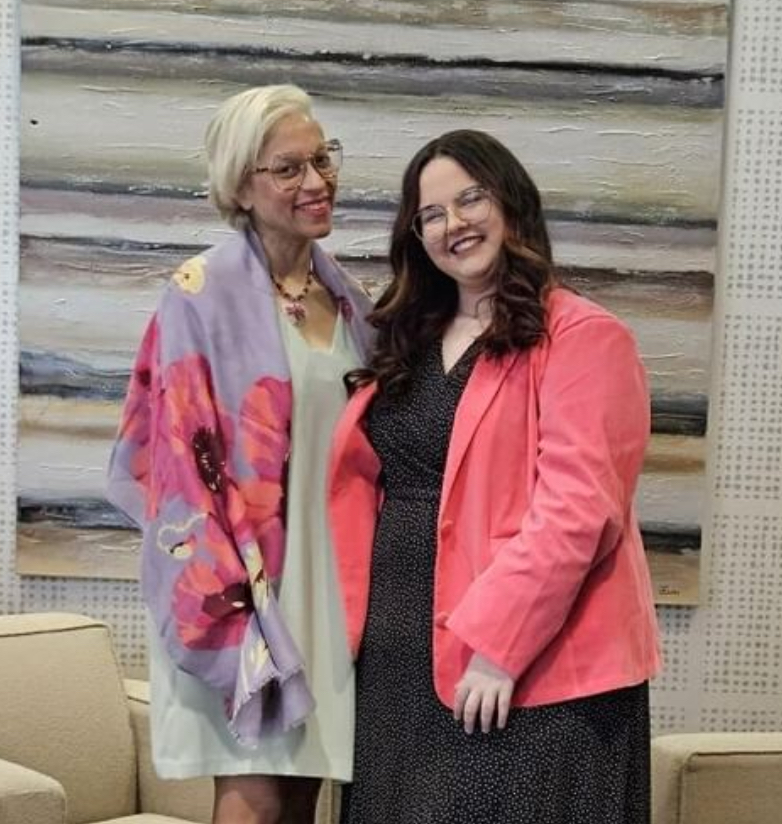Ellen Eldridge, Staff Writer
In 1999, while living in an apartment with no air-conditioning, no television and no dishwasher, Mark Maguire wanted to invest money to join the Georgia Associated Press. That was, until he was told he had membership through his job as a reporter for the Marietta Daily Journal. More than a decade later, Maguire works for the same company, Times-Journal. But now, he is director of magazines and oversees production of Cobb and Cherokee Life magazines and Cobb Business Journal.
“Know your audience” was Maguire’s key piece of advice for a group of KSU news writing students when he spoke Thursday morning about jobs in media.
He joked that paying for long-distance calls to editors when he first started out as a freelance reporter meant missing out on a six-pack of beer.
“And I was thirsty,” he said, adding that often a freelance writer back then would be put off by a secretary’s secretary saying the editor was too busy to bother with the writer’s pitch.
“Now, technology has changed everything,” Maguire said.
With tools like LinkedIn and Facebook, freelance writers have a better chance to get to know people in the industry.
KSU’s chapter of SPJ invited Maguire to discuss with students tips on freelance writing and to offer advice for building a career in the field of communication.
Instead of sending clips cut out from newspapers or magazines, writers can email three links to their best work, and interested editors can make quick decisions on pitches, Maguire said.
“They can vet you in five minutes,” he said.
But the challenge for any student graduating college and hoping to get published as a freelance writer or photographer is that the market is oversaturated, Maguire said.
“Most newspapers have cut senior leadership and these are the people you’re competing with for freelance jobs,” he said.
In addition, “everyone with an iPhone thinks they’re a photographer,” he said, making it tough to stand out—especially as a beginner.
Maguire’s advice for those who want to “stand out in a world of one million emails” is to join every organization that exists from SPJ to the Atlanta Press Club, never misspell the company or editor’s name in a query and know your audience.
“It may seem like I’m the maestro of the obvious here, but it happens,” he said. “People write ‘dear Mike’ to me or write about Cobb Living Magazine, which was a competitor. That [email] immediately gets deleted.”
Additional words of wisdom involved pitching story ideas concisely and embedding links to your best work. It’s just business, he said, hammering home the point that sending your best work that grabs the reader in the first three paragraphs is paramount.
“If you don’t catch me in the first three graphs, I can’t help you,” Maguire said, joking that a writer’s “best work” may be an 8,000-word epic piece of journalism, but no hiring editor has time to dig that deeply. “It’s not personal,” Maguire said, emphasizing that he currently only works with a part-time graphic designer and a part-time photographer. Eighty percent of the content for Cobb and Cherokee Life are written by freelancers, a situation that is becoming more and more common as organizations cut staff to avoid offering full-time benefits, Maguire said.
Some of the relationships Maguire has with freelancers have been fostered for more than a decade. Freelancers like Meredith Pruden, who attended KSU and worked for student media, have been writing for Maguire for years.
Maguire also noted that PR majors who want to be successful after graduation should look for work as a journalist for the first year out of college.
“Pay your dues,” he said, because to work in PR you have to be “damn good” and one way to get there is to understand why journalists on deadline are so grumpy.
Though he admitted journalism jobs are hard to find, Maguire said a real need exists for graduates with strong communication skills. The most important skill any writer or communicator has is the ability to connect with the audience.
“Whether you’re a musician, poet or preacher, you have to connect,” Maguire said. “Open yourself up; open a vein and pour it on the page. You have to connect or it’s worthless.”

